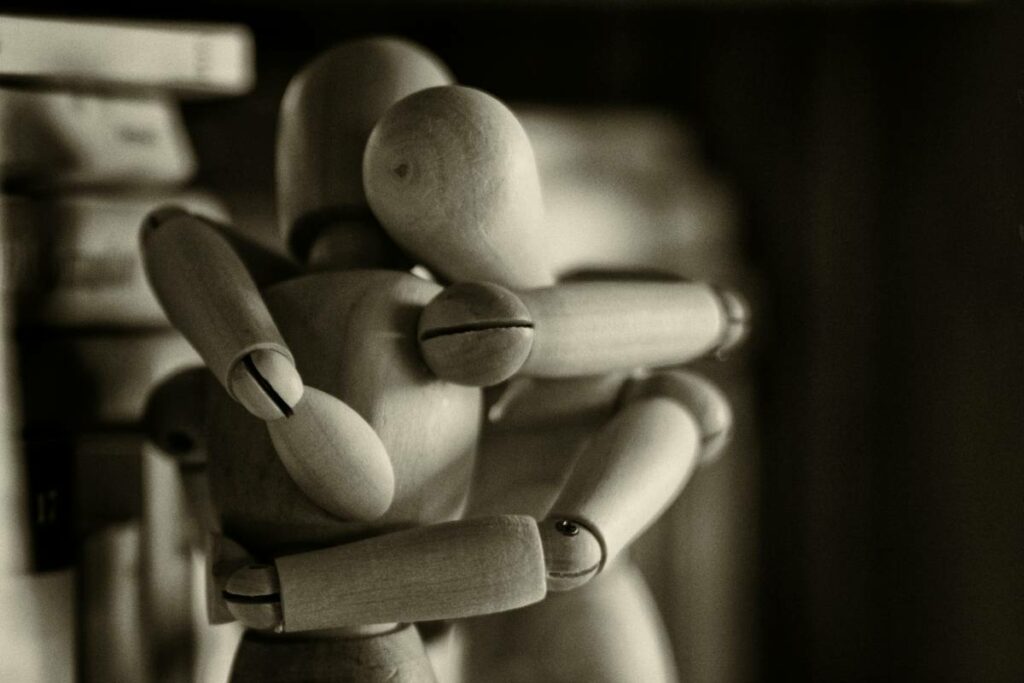Written by Vanesa García Navarro (sexologist)
@tusexualidadconsciente @amicseu

A conscious relationship is characterized by the awareness a person has when expressing their thoughts, emotions, and actions towards another person, being consistent and responsible towards them.
Where it all begins: society and upbringing
Currently, the presence of sexual education in our society is still not well-defined or established. Although it could be argued that we live in a liberal society that addresses the topic of sex from an early age, with talks in schools and the open-mindedness of contemporary parents, it is important to recognize that in terms of sexual education, patterns and taboos persist, but now aggravated by social hypersexualization, what I call the “rebound effect” or “pendulum effect,” driven by the accessibility and abusive use of social media and pornography.
The belief that providing basic information about anatomy, reproduction, and some contraceptive methods, along with school talks, fulfils the educational task, reflects an approach that, upon analysis, reveals similarities with past generational educational practices. In this sense, one must ask: has our educational approach really changed?
The reality is that considering the balance between a sexual education based on taboos and sexual education in the new era based on a hypersexualized society, balance can only be achieved through conscious sexual education.
To begin with, children learn through observation and imitation. The way families interact with each other and express their intimacy directly influences children’s perceptions of emotional and sexual relationships. Ideally, then, provide them with a family environment that fosters respect, open communication, and healthy expression of intimacy.
Behavioural patterns, the emotional atmosphere of the home, and the quality of communication are the foundation and example they will take as a starting point in their future emotional and sexual relationships.
Cultural and religious beliefs transmitted by families can also have a significant impact on the perception of sexuality. It is necessary for parents to be aware of their role as role models and educators and focus on the universality of human rights within emotional and sexual relationships. In this way, sexuality would be honoured within values where we could all fit universally.
Limiting beliefs and false expectations.
During adolescence and youth, people enhance their exploration of their sexual orientation and forge their beliefs about romantic relationships.
In this sense, our beliefs limit us and affect our emotional and affectionate relationships, becoming a risk if values and sexual identity are not well-defined and rooted beforehand.
The style of today’s society presents us with stereotypes to follow regarding how we should act towards partners and sexual practices. Television, social media, music, videos… everything around us transmits a message that is far from what is intended to be achieved with a more conscious and healthy education for all types of relationships.
Expectations about the body, ways of communicating, the frequency and intensity of sexual experiences… generate pressure, anxiety, and insecurity.
In this scenario, it is almost impossible for external influences not to affect emotional and sexual relationships, and for the emotions and self-esteem of young people to emerge unscathed.
You, the person to whom you owe the most love.

I am convinced that the foundation of conscious sexuality lies in self-esteem and self-awareness.
The most important relationship we can cultivate is the one we have with ourselves. Before embarking on any intimate interaction with another person, we must know ourselves and learn to love ourselves fully and compassionately.
Taking time to be clear about values before relationships, exploring your own body, understanding your desires and needs, and recognizing what makes you feel fulfilled. This intimate connection with ourselves establishes the foundations for more authentic and satisfying relationships.
Most of us initiate relationships from self-ignorance. We don’t truly love ourselves, we haven’t dedicated enough time to ourselves, we haven’t been alone with ourselves. This results in the hope that our happiness lies in the other person, and this is where everything fails miserably.
We enter into those relationships with demands and place all responsibility in the hands of that other person, without stopping to think that the real responsibility lies solely with us.
It is necessary to learn to accept and respect our own bodies. Self-acceptance will allow us to free ourselves from shame, learning to value ourselves and set boundaries will free us from guilt, and cultivating a deeper connection with ourselves and with others will allow us to experience sexuality with gratitude.
Exploring conscious sexuality involves experimenting in a responsible and consensual manner. Learning to communicate desires and boundaries clearly and respecting those of others will allow them to explore and experience sexuality in a conscious and healthy way.
Conclusion
It could be considered that the priority does not lie in saturating the minds of young people with theoretical knowledge, but rather creating for them an environment of safety, trust, and respect, where they can explore their authenticity without fear of what others may say or think.
An environment where sincerity is the protagonist and we rid ourselves of all superficiality. Let’s encourage young people to spend time with themselves, to dedicate time to getting to know themselves before offering their bodies and emotions to others.
It may seem simple in theory, although I acknowledge that putting it into practice presents great challenges. Therefore, adults must themselves embark on conscious sexuality and try to become in some way that social lifeline that young people so desperately need.
Learning to respect oneself, to love oneself, not to put oneself above others, to know oneself better, to set boundaries, and ultimately, to become one’s best relationship.
Only in this way can a comprehensive and sincere sexual education be transmitted. And finally, remember that each must tread their own path. Sometimes we can accompany young people and at other times they must do it in solitude. We can only trust that we have provided them with the tools and values necessary for them to succeed.
Conscious sexual education develops in homes, schools, and society, and at any stage of life, as experiences and experiences nourish our values that will shape the quality of our sexual and emotional relationships.
